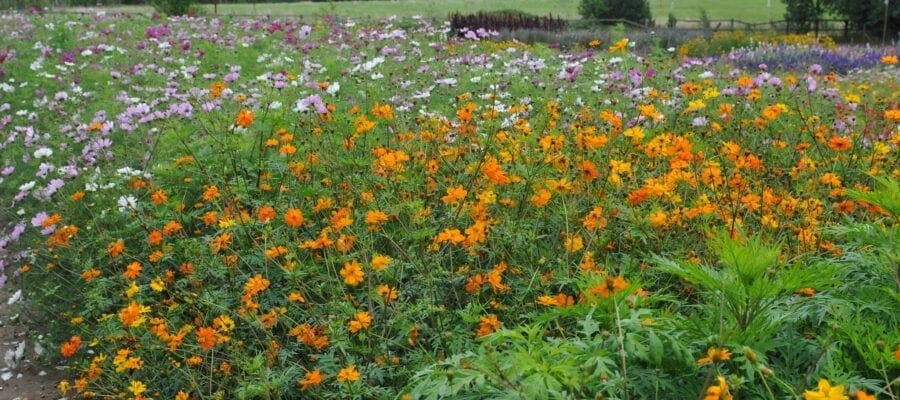Mr Fothergill’s is encouraging gardeners to help bees by growing a wide range of flowers that bloom at different times through the season.
A colony of honey bees is settling into its new home on the Mr Fothergill’s trial ground, ready to reap the pollen of over 2,250 flower and vegetable varieties being assessed for garden performance this summer.
Mr Fothergill’s Technical Manager Alison Mulvaney took on the colony three years ago, when it swarmed on a plum tree in her garden. With UK bee populations in massive decline, she wanted to provide the colony with a pollen-rich environment, while raising awareness of these vital garden pollinators, so in April the hive was moved to the company’s trial ground in Kentford, Suffolk. Foraging honey bees will travel up to six miles per day in search of pollen, but the Mr Fothergill’s colony will have everything it needs within metres of the hive.
Alison says, “We will be setting up a staff bee group to help look after the hive. It is a fascinating and rewarding hobby, and we are not going to be short of volunteers. It isn’t just about helping to support a threatened species; our bees will have a practical role to play too. Having them on site will be really useful in helping us pollinate the hundreds of peas, beans, tomatoes, peppers and squash we grow each year.”
Mr Fothergill’s is encouraging gardeners to help bees by growing a wide range of flowers that bloom at different times through the season. The company is also asking any gardeners faced with an unwanted honey bee swarm to contact the British Bee Keepers Association to arrange for a swarm collection, rather than calling a pest control service. Find out more at https://www.bbka.org.uk/help/do_you_have_a_swarm.php





